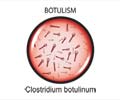Researchers at University of Copenhagen have developed a new method of stopping unwanted plant toxins from entering the edible parts of the plant

The potential for toxin-free oilseed rape as a feed crop
The oilseed rape plant is but one example of a crop whose use will be greatly enhanced thanks to the new technology. Unlike the healthy glucosinolates found in broccoli, oilseed rape additionally produces a glucosinolate that is harmful to most animals when consumed in larger amounts.
This means that protein-rich rapeseed cake produced using the byproduct of rapeseeds pressed for oil, can only be used in limited quantities for pig and chicken feed. Due to this, Northern Europe continues to import large amounts of soy cake for animal feed.Two transport proteins found
The breakthrough increases the potential of oilseed rape as a commercial animal feed:
"We managed to find two proteins that transport glucosinolates into the seeds of the thale cress plant, a close relative of the oilseed rape. When we subsequently produced thale cress without these two proteins, the remarkable result was that their seeds were completely free of glucosinolates and thus suitable for feed," emphasises Barbara Ann Halkier.
Advertisement
The research results are the fruit of 16 years of basic research, an excellent example of how basic research can result in new discoveries of direct use for society.
Advertisement
Source-Eurekalert

![Genetically Modified Food / Genetically Modified Organism [GMO] Genetically Modified Food / Genetically Modified Organism [GMO]](https://images.medindia.net/patientinfo/120_100/Genetically-Modified-Food.jpg)










